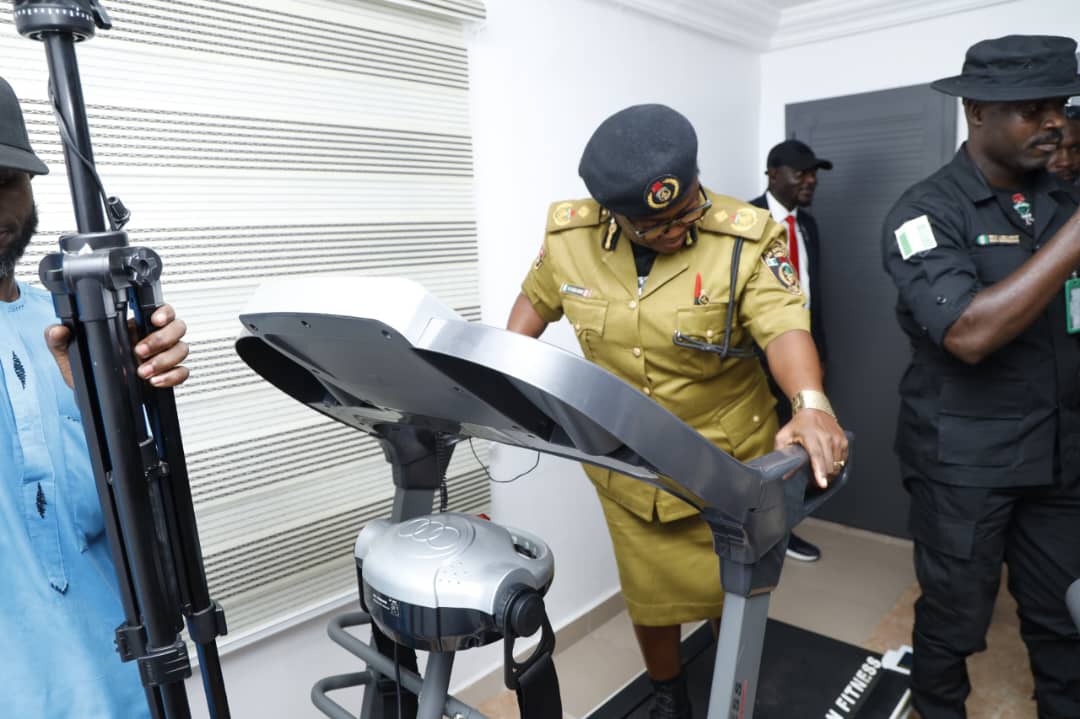Federal Agencies Tour GM TELA Farm, Applaud Crop Performance
Representatives from four key federal government agencies have undertaken a fact-finding visit to farms cultivating genetically modified (GM) maize and cowpea in Nigeria, expressing satisfaction with the crop’s performance.
The visit, organized as part of a “Seeing is Believing” tour, was led by the National Biosafety Management Agency (NBMA) and included officials from the National Orientation Agency (NOA), the Federal Competition and Consumer Protection Commission (FCCPC), and the National Biotechnology Research and Development Agency (NABDA).
The mission aimed to deepen their understanding of GM crop performance and biosafety regulation in the country.
During the visit, Dr. Yarama Ndipaya of the African Agricultural Technology Foundation (AATF) guided the delegation around the demonstration fields, highlighting the yield advantage and resilience of genetically modified crops compared to conventional varieties.
“We are struggling to meet the growing demand from farmers for TELA Maize and Pod Borer Resistant (PBR) Cowpea seeds,” said Dr. Ndipaya.
“These improved varieties consistently outperform conventional ones in yield, pest resistance, and adaptability. Farmers themselves are witnessing and affirming their benefits.” He added.
Dr. Ndipaya emphasized that GMO technology offers tailored solutions to the specific needs and ecological challenges of African agriculture.
“It is our responsibility to ensure smallholder farmers have access to technologies that can boost productivity and secure livelihoods,” he pointed out.
Dr. Rose Gidado, Director of Agricultural Biotechnology at NABDA, praised the success of the PBR Cowpea, noting that Nigeria remains the world’s largest producer and consumer of the crop.
She expressed confidence in the science behind GMOs, pointing out that over 45 countries—including the United States, Brazil, Argentina, Spain, Portugal, South Africa, Malawi, Kenya, and Ghana—have adopted the technology.
Speaking during the visit, Mr. Andrew Nanfwang, a local farmer, attested to the impact of GM technology on his farming outcomes.
“TELA maize has significantly improved my yields. The difference is clear,” he said.
Mr. Segun Alao of the National Orientation Agency described the tour as an enlightening experience.
“It gave us the opportunity to engage experts, ask tough questions, and see firsthand how the technology works. This helps us better contextualize the GMO debate, particularly on safety and regulation,” he noted.
The visit is part of broader efforts to build trust in agricultural biotechnology through transparency, public engagement, and evidence-based communication.
Founded in 2003 to address Africa’s food security prospects through agricultural technology, AATF believes that the agricultural sector is a key foundational pillar as Africa consolidates its economic growth and carves out its new position as a major global economic powerhouse and the next growth market in the world.
It was formed in response to the need for an effective mechanism that would facilitate and support negotiation for technology access and delivery and formation of appropriate partnerships to manage the development & deployment of innovative technologies for use by smallholder farmers in Sub Saharan Africa (SSA).



